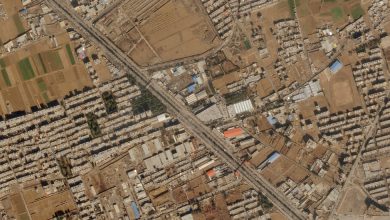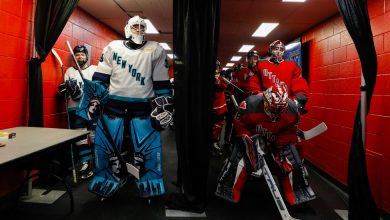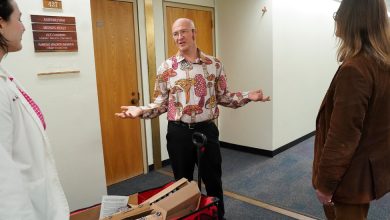Your Tuesday Briefing


E.U. leaders endorsed an embargo on Russian oil delivered by tankers.Credit…Olivier Matthys/Associated Press
Europe’s leaders reach deal on Russian oil embargo
The E.U. agreed yesterday to ban most imports of Russian oil, the harshest economic penalty yet imposed for Russia’s invasion of Ukraine and potentially Europe’s biggest sacrifice. The bloc had already barred imports of Russian natural gas, cut off Russian banks, frozen Russian assets and sent advanced weaponry to Ukraine. Follow the latest updates from the war.
E.U. leaders endorsed an embargo on Russian oil delivered by tankers, the primary method, effectively reducing imports by two-thirds, with commitments to reduce imports by pipeline. Charles Michel, president of the European Council, announced the deal in a late-night tweet, though many details remain to be hashed out.
Russia’s war in Ukraine is financed by sales of crude and refined petroleum and natural gas, which account for most of the country’s export revenue, collected primarily by state-controlled energy companies. Analysts say that Russia will continue to find some buyers for its oil but that sales volume and profits are likely to drop significantly once the embargo takes effect.
Impact: Europe relies heavily on Russian fuels. Officials have warned that the financial cost to E.U. countries will be high. Other sources are expected to be more expensive, and gas and oil shortages are a real possibility. The prohibition on oil deliveries aboard tankers will have no effect on Hungary, a landlocked nation.
Warfare: The endorsement came as a multipronged Kremlin assault closed in on the easternmost Ukrainian-controlled city, Sievierodonetsk, and as Ukraine’s military mounted a counteroffensive to retake the strategic southern city of Kherson.
In other news from the war:
-
As Ukraine calls for a fast track to E.U. membership, moral questions are butting up against practical concerns. The bloc is looking for an alternative route for Ukraine and other countries on Europe’s periphery.
-
A 32-year-old French journalist, Frédéric Leclerc-Imhoff, was killed yesterday in eastern Ukraine. At least seven journalists have been killed and at least nine have been injured in the war.
-
Kalush Orchestra, the Ukrainian band that won Eurovision, put its trophy up for auction to raise money for the Ukrainian army.
Canada plans to ban handgun sales
The Canadian government yesterday introduced new legislation requiring most owners of “military-style assault weapons” to turn over their firearms to a government buyback program and banning the sale, purchase, importation or transfer of handguns. Together, the legislation would tighten the country’s already stringent control of firearms.
The handgun sales ban and the proposed assault weapons law are the latest steps Justin Trudeau, the prime minister, has taken to restrict firearms since 22 people were killed in rural Nova Scotia by a gunman in 2020. The legislation, which could apply to tens of thousands of firearms, is expected to pass.
The program echoes actions taken by New Zealand in 2019, after a lone gunman stormed two mosques, killing 51 people and injuring dozens of others in Christchurch. After a mass shooting in Australia in 1996, the government there collected more than 650,000 semiautomatic rifles and many shotguns after they were banned under new legislation.
Quotable: “As a government, as a society, we have a responsibility to act to prevent more tragedies,” Trudeau said. He added: “We need only look south of the border to know that if we do not take action, firmly and rapidly, it gets worse and worse and more difficult to counter.”
Colombia’s establishment backs Rodolfo Hernández
Rodolfo Hernández is a Colombian businessman with a populist, anticorruption platform and whose outsider status, incendiary statements and single-issue approach to politics have sparked comparisons to Donald Trump. On Sunday, he came second in Colombia’s presidential election, beating the conservative establishment candidate — and the predictions of pollsters.
Hernández once called himself a follower of Adolf Hitler, has suggested combining major ministries to save money and says that as president he plans to declare a state of emergency to deal with corruption, leading to fears that he could shut down Congress or suspend mayors. But Colombia’s right-wing establishment has begun lining up behind him, bringing many of their votes with them.
His challenger, Gustavo Petro, a former rebel-turned-senator making a bid to be the nation’s first leftist president, is now billing himself as the safe change and Hernández as the dangerous leap into the void. Hernández’s improbable rise reflects both a rejection of the conservative elite who have long controlled the country’s politics — and of Petro.
Analysis: Fernando Posada, a political scientist, said the move was also the establishment right’s last-ditch effort to block Petro, whose plan to remake the Colombian economy “puts at risk many of the interests of the traditional political class.
THE LATEST NEWS
Around the World
-
Rescue workers in Nepal recovered 21 bodies yesterday after a daylong effort to reach the site of a plane crash in the rocky heights of the Himalayas.
-
Staff shortages at Dublin’s airport caused more than 1,000 people to miss their flights this weekend, a possible omen of European travel snarls to come this summer.
-
North Korea reported an increase in suspected new cases of Covid-19 yesterday, a day after its government claimed to have the pandemic under control.
-
Sexual assault and harassment are pervasive




